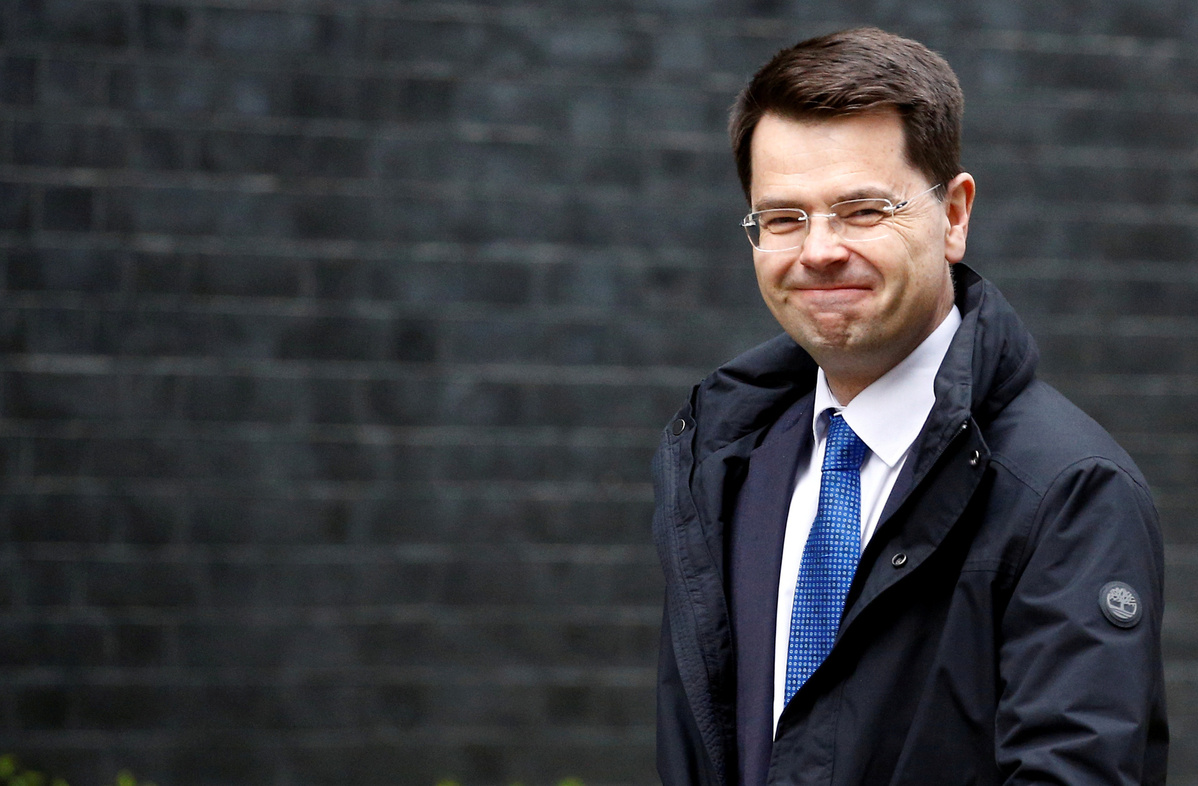UK offers Brexit olive branch over database deal
By JULIAN SHEA in London | China Daily Global | Updated: 2020-06-17 09:50

The United Kingdom has offered a potential peace offering amid on-going tensions over Brexit negotiations with the European Union by agreeing to share criminal suspects' DNA data with EU law enforcement bodies.
The issue is not part of the current negotiations over future trade relations between the UK and EU once the Brexit transition period ends, but the announcement made to Parliament on Monday could be interpreted as a gesture to improve strained relations.
In 2015, then-Home Secretary Theresa May oversaw the UK opting into an EU-wide crime-fighting database that included the exchange of biometric data. One year ago, the government began sharing the data of convicted criminals but held back on including suspects' DNA, a position that has now been reversed.
"It is the government's intention to begin exchanging suspects' data held in England, Wales and Northern Ireland with connected EU member states through Prum," said Home Office minister James Brokenshire, referring to the 2005 agreement that set down the rules on exchanging the fingerprints, car number plates and DNA of criminals and suspects.
Policing in Scotland is devolved to the Scottish government, but consultations will be held over the matter, he added.
"Ensuring continued adherence to the UK's scientific standards means there is a one in a billion chance that a UK DNA sample would be falsely matched with an overseas criminal investigation," Brokenshire added, addressing fears over possible mistakes.
So far, the DNA exchange system has helped law officials on both sides of the English Channel. Since last summer, the UK has provided EU law enforcement officials with 41,000 hits, which are anonymous yes/no DNA matches, which can then be followed up for more details if they produce a positive result. Around 12,000 hits related to on-going investigations in the UK have come from EU member states.
Civil liberties groups, however, have expressed concern at the possible consequences of the decision.
Silkie Carlo, of surveillance campaign group Big Brother Watch, said "It's not only a serious privacy intrusion but significantly widens the international policing Brits can be subject to." Ksenia Bakina, legal officer for UK-based charity Privacy International, said the inclusion of suspects' DNA data was "very troubling."
Britain's transition period out of the EU finishes at the end of this year, a self-imposed cut-off point that Prime Minister Boris Johnson has repeatedly said the government will not extend.
With negotiating time running out and huge amounts of ground to be covered, prospects of the two sides reaching an agreement for future trading relations seem slim, leading to the prospect of a so-called No-Deal Brexit, which is widely predicted to cause major economic and social upheaval, particularly if it comes in the aftermath of the damage caused by the novel coronavirus outbreak.
Johnson is due to have face-to-face talks with European Commission President Ursula von der Leyen later this month.
























